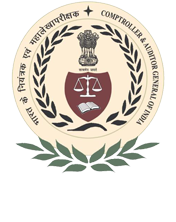Audit Reports

Madhya Pradesh
Report of the Comptroller and Auditor General of India - Civil - for the year ended 31 March 2010, Government of Madhya Pradesh
Overview
The Report includes three chapters containing five reviews and 21 paragraphs dealing with the results of performance audit of selected programmes and schemes as well as audit of the financial transactions of the Government.The audit has been conducted in accordance with the Auditing Standards prescribed for the Indian Audit and Accounts Department. Audit samples have been drawn based on statistical sampling methods as well as on judgement basis. The specific audit methodology adopted for programmes and schemes has been mentioned in the reviews.
The audit conclusions have been drawn and recommendations made, taking into consideration the views of the Government.Madhya Pradesh Assembly Constituency Area Development Scheme The Madhya Pradesh Assembly Constituency Area Development Scheme was launched in July 1994 with the obj ective of taking up developmental works of capital nature on the recommendations of Members of the Legislative Assembly (MLAs).
The performance audit of implementation of the Madhya Pradesh Assembly Constituency Area Development Scheme revealed that the planning for implementation of the scheme was not effective. Funds amounting to Rs. 151.49 crore remained unspent with the executing agencies. Unspent balances of Rs. 96.29 lakh in respect of 668 completed works could not be taken back from the executing agencies. In 11 out of 12 test-checked districts, 717 works costing Rs. 10.62 crore remained incomplete. In six out of 12 test-checked districts, 111 works could not be started due to selection of disputed sites. In seven out of 12 test-checked districts, completion certificates in respect of 2,828 works were awaited from the executing agencies. Quarterly meetings with MLAs and executing officers were not held regularly to monitor the progress of works undertaken under the scheme. Due to non-maintenance of a data base and asset registers, the public was largely unaware of the work done under the scheme in their districts.

